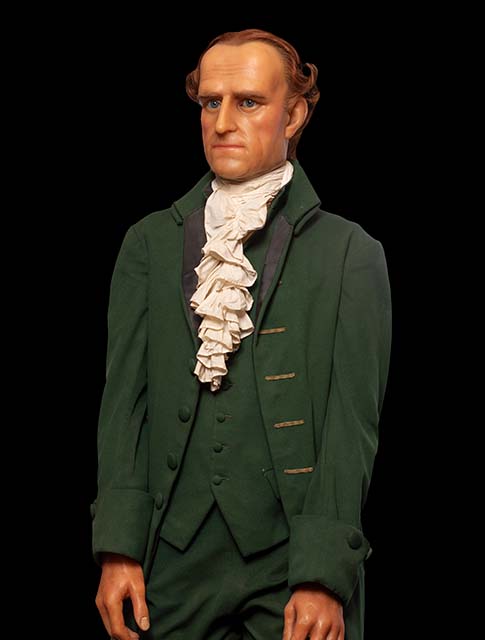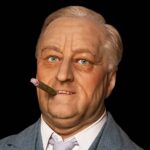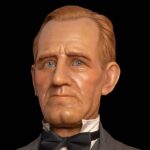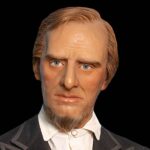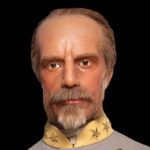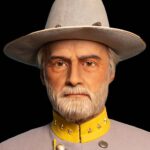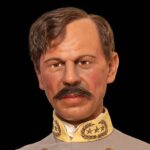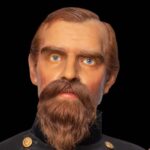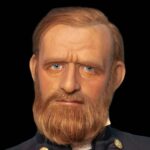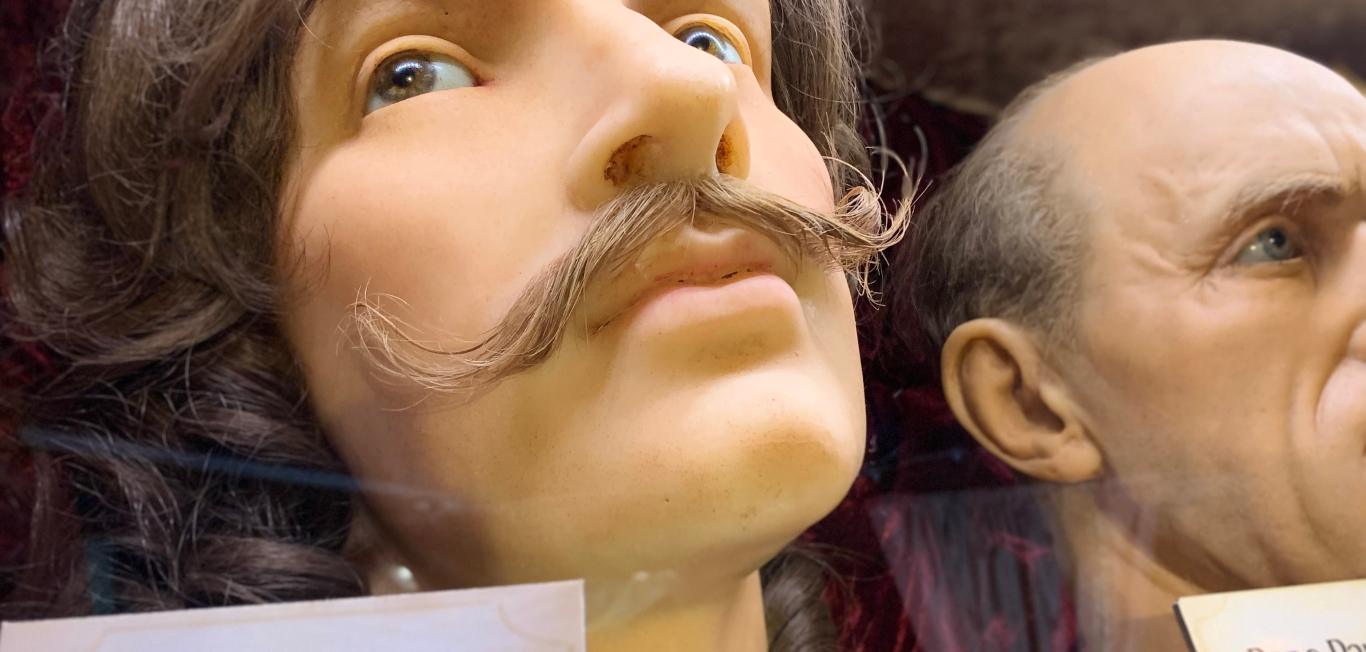Who Was Patrick Henry?
“Give me liberty or give me death!” exclaimed a middle-aged Virginian. This Virginian was representing the rest of his state at the Second Virginia Convention in 1774, and was making a big impression considering it was his first time attending the convention. This impression was so big that we remember him 250 years later for these momentous and dramatic words (historians debate whether they should even be attributed to him at all), as well as his many years of service to the country that he helped to father. Politician and man of memorable words, Patrick Henry is known well by many Americans for his role as a front-runner of the American Revolution. However, not everyone knows all the exciting details of Henry’s history.
“Give me liberty or give me death!”
Interesting Facts
Before finding politics, Patrick Henry failed at many careers.
From shop clerk to tobacco farmer, Henry tried (and failed) many different roles before pursuing politics and law. In fact, he tried to be a clerk twice and, after failing the second time, crawled to his father-in-law for a job where his luck changed utterly. It was while working at his father-in-law’s tavern that he met many lawyers and found his passion for legal practice.
Nobody knows if Patrick Henry ever said, “Give me liberty or give me death.”
The evidence of Patrick Henry’s most famous line is shaky at best. During the speech he gave on March 23, 1775, nobody worked as a transcriber, so when William Wirt was writing Patrick Henry’s biography, published in 1817, he was hard-pressed to find an account of the line. Wirt used interviews with eyewitnesses to piece together the speech; however, to this day, no one is quite sure how accurate this depiction is.
Henry turned down an offer to become Secretary of State.
Early in his career, Patrick Henry was a strong Anti-Federalist who disagreed wholeheartedly with President George Washington’s Federalist platform. George Washington believed the United States needed a strong central government to run correctly. In contrast, Henry and fellow Anti-Federalists thought that a strong central government would be too in line with the monarchy the new country had just seceded from. This belief meant that when the president offered him the position of Secretary of State, Henry turned it down due to political differences.
Patrick Henry’s father was an immigrant.
Henry’s father, John Henry, immigrated from Aberdeen, Scotland, in 1727. John Henry came from a well-off family and had the intelligence to earn a scholarship to the University of Aberdeen. There, he reconnected with a childhood friend, John Syme, who later made a fortune in Virginia. This promise of wealth encouraged John Henry to join John Syme in Virginia, where, after John Syme’s tragic death, John Henry married his widow Sarah. Years later, John and Sarah gave birth to Patrick Henry, the future Founding Father.
Thomas Jefferson knew of Patrick Henry long before the two were Founding Fathers.
At the beginning of his political career, when Henry was still working with the House of Burgesses, Thomas Jefferson saw him give a speech that impressed upon the future U.S. president the oratory skill that Henry possessed. This speech was a great example of Henry’s strong Anti-Federalist beliefs early on, as it spoke out in defense of small Virginian farmers and against wealthy planters. The argument for an anti-centralized government in this speech is most likely part of what spoke to Thomas Jefferson as well, as the young politician would become a fellow staunch Anti-Federalist.
Patrick Henry switched parties later on in life.
Patrick Henry was a staunch Anti-Federalist throughout his career, from his work in the Parsons’ Cause to his role at the Constitutional Conventions. Later in his life, however, he would change his tune and agree with the Federalists’ bid for a strong central government. This opinion starkly contrasted his first big political move, the Parsons’ Cause, where he based his monumental argument on giving more of a voice to the local people, especially the uneducated farmers of Virginia.
Patrick Henry left a warning to the people of America after his death.
Next to his will, Henry left an envelope within which he had copied his seven Stamp Act Resolves and a message for the United States. This message proved to be a warning to the people of the country he fathered that their independence from Britain could “prove a Blessing or a Curse” depending “on the Use our people make of the blessings which a gracious God hath bestowed on us.”
Early Life of
Patrick Henry
Henry’s life began where it eventually ended: the great state of Virginia. On May 29, 1736, in Hanover County, VA, his mother, Sarah Winston Syme, and father, John Henry, were blessed with a baby boy who would eventually father a nation. While his mother was already a widow at the time of her son’s birth and came from a distinguished family in the area, his father was merely a planter who had emigrated from Scotland. Therefore, the two most well-regarded aspects of the American experience existed within the young Founding Father and can describe Patrick Henry and whom he would later become: the true-blue Americans who have never left and the newly converted patriots who come for a better life.
DID YOU KNOW?
Henry’s life began where it eventually ended: the great state of Virginia.
A Revolutionary Force
So, Henry grew up in Virginia and stumbled into law later on in his life. But who was Patrick Henry? How can one describe him? Most know him as a Founding Father, but what does that even mean? How did Patrick Henry get there?
After failing at several other career paths, Henry fell into law after getting a job at a tavern right across from a courthouse. Soon after, in several swift steps, he embraced his newfound love of law. Only a month after beginning his law studies, he was awarded a lawyer’s license, in April of 1760. From there, it was a long trek to politics. Still, along the way, Henry made a name for himself as a phenomenal orator long before his famous “give me liberty or give me death” line.
Most say that his political career truly began with the Parsons’ Cause. In this hearing, Henry showed his skills in law as well as his knowledge of the state of his birth by navigating a controversy between the local government of Virginia and the clergy. He set in motion many changes that would characterize his political style and the future of law and politics in the nation. In the case, Henry looked to the British Constitution, where he was able to argue that the clergy was an enemy to the representative government laid out in that constitution, as well as to the local people of Virginia. Henry’s success with the Parsons’ Cause earned him 164 new clients for his law practice and launched his career in full force.
After the Parsons’ Cause, for which Henry’s part ended in December 1763, he became a local hero, as he was well-known for lifting the voices of his local constituents. Therefore, his election to the House of Burgesses in 1765, through which he began his first political role, was unsurprising. During this job, he further fought against faraway control and for the rights of local people while simultaneously impressing everyone with his skills as a public speaker, including future Founding Father Thomas Jefferson.
Patrick Henry’s first case in the House of Burgesses surrounded the debate over the now infamous Stamp Act. After Britain passed the bill, Henry created the Stamp Act Resolves, which he introduced on May 29. His seven iconic resolves were part of the early fight against “taxation without representation.” In them, he wrote that Virginians had the same rights and protections as anyone back in Britain, and the Stamp Act clearly violated this. Radically, Henry used language in his resolves that less-educated Virginians could understand.
Never one to give up an opportunity to show off his skills as an orator, along with his written resolves, Henry gave a memorable speech where he danced around directly threatening their monarch in Britain, King George, by mentioning the killing of tyrants, specifically the conflict between Caesar and Brutus. This speech pushed many to call Henry a traitor to his country and decree his speech treason. In fact, Henry’s fifth resolve, which mentioned that the taxation of the Stamp Act “has a manifest tendency to destroy British as well as American Freedom,” was erased from the record so it could never be used as precedent. And yet, five of his seven resolves were still passed on May 30 through the House of Burgesses.
DID YOU KNOW?
His seven iconic resolves were part of the early fight against “taxation without representation.”
From then on, Patrick Henry’s role in the American Revolution snowballed. He became acknowledged as a radical leader of the Whig Party and helped establish the intercolonial committees of correspondence, including the Virginia Committee of Correspondence, of which he was a member. Things really kicked off with the First Continental Congress in 1774, where he had another famous speech that included the line, “I am not a Virginian, but an American.” Then, at the Second Virginia Convention of 1775, Henry supposedly gave his most famous speech, which ended with the line “Give me liberty or give me death.” Evidence of this speech’s content, however, is meager and constantly debated. Despite his importance to the First Continental Congress in 1774, Henry was not elected as a delegate for the Second Continental Congress and therefore did not help in writing and signing the Declaration of Independence.
By the end of his career and his life, Patrick Henry’s politics began to evolve. The violence and radicalism of the French Revolution, the Virginia and Kentucky Resolutions, and contemporary Anti-Federalism soured Henry to the party he had long called home. Despite his years-long fight for the rights of the little man and his liberty, Henry began to see the importance of a centralized government. In 1799, he ran for legislature under the banner of the Federalist Party; however, his death only months later meant he could never take that position.
Personal Life and Later Years
Patrick Henry married twice, first to Sarah Shelton, who mothered six children with Henry and would later die in 1775, and then to Dorothea Spotswood Dandridge, with whom he eventually had 11 children. These marriages, particularly his marriage to Dandridge, cemented Henry’s social standing, which he valued highly alongside his wealth. During his work with the House of Burgesses, Henry worked hard to amass tremendous wealth, mainly through land speculation and his continued work as a lawyer. He eventually gained enough money to buy land and slaves, starkly contrasting with his political career, wherein he argued against slavery.
However, no social standing or wealth could help with the declining health Henry faced later in life. In 1790, he temporarily retired from the legislature due to his declining health, only to return nine years later due to his renewed interest in politics after switching parties. However, nature won out over Patrick Henry’s strong will, and he could never serve as a Federalist legislator, as he died of stomach cancer on June 6, 1799.
His Legacy
Patrick Henry is regarded today as one of history’s best orators, known especially for his iconic speech at the Virginia Convention, which ended with the line “Give me liberty or give me death,” and as one of the United States of America’s Founding Fathers. Many Americans honor him by remembering the history of his life or even visiting attractions like Potter’s Wax Museum. Newport News, Virginia, famously chose to remember one of Virginia’s most famous residents by naming their only enclosed mall between Norfolk and Richmond the Patrick Henry Mall. From places like the Patrick Henry Mall to Potter’s Wax Museum, people today can find places that honor the magnificent speech giver throughout the United States. More than that, though, the country in which these attractions are built would not exist without the tireless effort of Patrick Henry.
DID YOU KNOW?
Patrick Henry is regarded today as one of history’s best orators, known especially for his iconic speech at the Virginia Convention.
FAQs
Which hearing made Patrick Henry famous?
The hearing that made Patrick Henry famous and launched his law and eventually political career was the Parsons’ Cause.
How did Patrick Henry die?
Patrick Henry died of stomach cancer.
What was Patrick Henry’s first political position?
The first political position that Patrick Henry ever held was as a member of the Virginian House of Burgesses.
How many clients did Patrick Henry win with his first major case?
Patrick Henry won 164 clients after succeeding in his first major case, the Parsons’ Cause.
Did Patrick Henry own slaves?
Despite his political stance, Patrick Henry did own slaves later on in his career.
